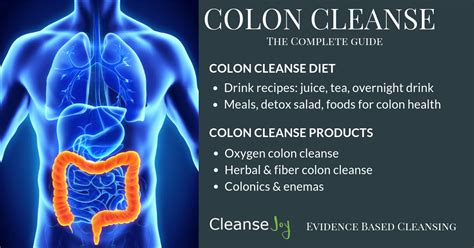Effective Colon Cleansing: Preparation is Key
Colon cleansing, also known as colonic irrigation or colonic hydrotherapy, involves flushing the large intestine with water to remove built-up waste. While it's touted by some as a way to improve digestive health and overall well-being, it's crucial to understand that preparation is paramount for a safe and effective procedure. This isn't a DIY endeavor; it should be performed under the supervision of a qualified healthcare professional. This article explores the vital role of preparation in ensuring a positive colon cleansing experience.
What is Colon Cleansing and Why Prepare?
Colon cleansing aims to remove impacted fecal matter from the colon. Proponents believe this can alleviate symptoms like bloating, constipation, and fatigue. However, it's important to note that the scientific evidence supporting these claims is limited and often debated. While some individuals may experience temporary relief, it's not a cure-all and shouldn't replace healthy lifestyle choices like balanced nutrition and regular exercise.
Preparation is key because:
- Minimizes discomfort and risk: Proper preparation helps ensure the procedure is as comfortable as possible and minimizes the risk of complications such as cramping, dehydration, or electrolyte imbalances.
- Maximizes effectiveness: Adequate preparation allows the practitioner to effectively cleanse the colon and achieve the desired results.
- Ensures accurate assessment: Preparation allows the practitioner to better assess the condition of the colon and identify any potential issues.
What Does Proper Preparation Entail?
Preparation for colon cleansing typically involves a combination of dietary and lifestyle modifications in the days leading up to the procedure. This varies depending on the practitioner's recommendations but generally includes:
- Dietary changes: Switching to a clear liquid diet for 24-48 hours before the procedure is common. This includes broths, clear juices, and water. Avoiding solid foods helps to reduce the amount of waste in the colon, making the cleansing process more effective.
- Increased water intake: Drinking plenty of water helps to flush out the system and prepare the colon for the cleansing process.
- Electrolyte balance: Electrolyte loss can be a concern during colon cleansing, so ensuring adequate intake of electrolytes (sodium, potassium, etc.) is important. This is especially crucial if you are following a restrictive diet.
- Laxatives (under medical guidance): In some cases, a mild laxative may be recommended to help soften the stool and facilitate easier elimination. This should only be done under the direct supervision of a healthcare professional.
- Avoiding certain foods and drinks: Foods high in fiber, caffeine, and alcohol should be avoided in the days leading up to the procedure, as they can potentially interfere with the process.
How Long Should You Prepare?
The preparation period varies based on individual needs and the practitioner's recommendations. Generally, a 24-48 hour period of dietary restriction and increased water intake is sufficient. However, some practitioners may recommend longer preparation periods depending on the individual's health history and the type of colon cleanse being performed.
What Happens if I Don't Prepare Properly?
Inadequate preparation can lead to a number of unpleasant side effects, including:
- Increased discomfort: Cramping, bloating, and nausea are more likely if the colon is not properly prepared.
- Reduced effectiveness: The procedure may not be as effective in removing impacted fecal matter.
- Increased risk of complications: Improper preparation can increase the risk of dehydration, electrolyte imbalances, and other complications.
Is Colon Cleansing Right for Me?
Colon cleansing is not a suitable treatment for everyone. It's crucial to discuss it with your doctor before undergoing the procedure. They can assess your health status and determine if it's appropriate for you. Underlying medical conditions may make colon cleansing unsafe or ineffective.
What are the potential risks and side effects of colon cleansing?
While generally considered safe when performed by a qualified professional, colon cleansing carries some potential risks and side effects, including:
- Dehydration: This is a serious concern, particularly if you are not adequately hydrating during and after the procedure.
- Electrolyte imbalance: Loss of essential minerals can lead to various health problems.
- Intestinal perforation: A very rare but serious complication.
- Infection: Although uncommon, the procedure carries a risk of infection if proper hygiene is not maintained.
Remember, effective colon cleansing relies heavily on adequate preparation. Always consult with a qualified healthcare professional before undergoing this procedure to ensure your safety and maximize the potential benefits. They can guide you through the preparation process and address any concerns you may have. They can also help you determine if colon cleansing is the right choice for you, given your individual health needs and circumstances.

